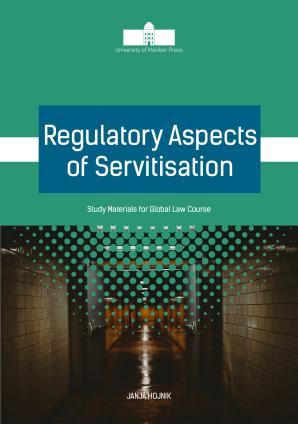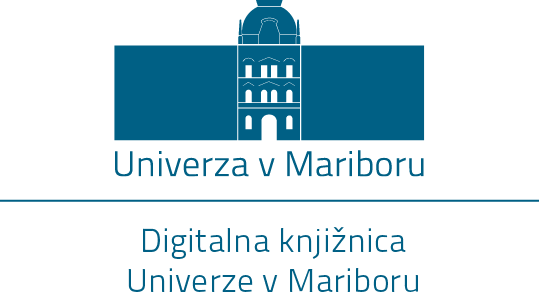Regulatory Aspects of Servitisation: Study Materials for Global Law Course
Ključne besede:
storitvizacija, digitalizacija, krožno gospodarstvo, sodelovalna ekonomija, platforme, razširjena produktna odgovornost, ekodizajn, varstvo potrošnikov, EUKratka vsebina
Pravni vidiki storitvizacije: Študijsko gradivo za tečaj globalnega prava. To študijsko gradivo je bilo pripravljeno kot podpora za serijo predavanj v okviru programa Global Law, ki ga je organizirala Katoliška univerza Leuven (Belgija), Fakulteta za pravo in kriminologijo. Predmet je obravnaval regulatorne izzive EU, ki izhajajo iz storitvizacije proizvodnje in s tem povezanih procesov trajnosti in digitalizacije v gospodarstvu EU. Storitvizacija je kompleksen interdisciplinarni koncept, ki v bistvu pomeni združevanje izdelkov in storitev. Storitvizacija kot ekonomski megatrend odraža k potrošnikom usmerjene poslovne modele, ki kupcem ne ponujajo le izdelkov, temveč rešitve za njihove težave. Ta ponudba rešitev je nadgrajena z digitalizacijo gospodarstva, ki omogoča lažje vzdrževanje odnosa med ponudniki izdelkov in storitev ter njihovimi kupci zaradi različnih mehanizmov oddaljenega komuniciranja in spremljanja. Poleg tega je storitvizacija v središču prizadevanj za vzpostavitev bolj trajnostnega krožnega gospodarstva. Dodajanje storitev izdelkom lahko podaljša čas njihove porabe, zmanjša količino potrebnih materialov za določen učinek in izboljša ravnanje z odpadki. Vse bolj pa je jasno, da storitvizacija ni povezana samo z okoljsko trajnostjo, ampak tudi s socialno. Te storitve pogosto zahtevajo, da jih izvajajo ljudje, digitalne aplikacije pa običajno zmanjšujejo njihove pravice delavcev v korist lastnikov teh aplikacij.
Prenosi







